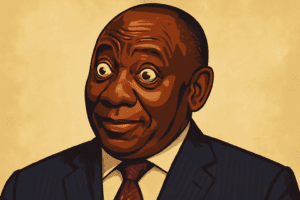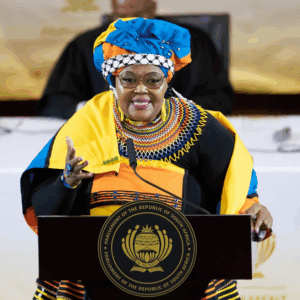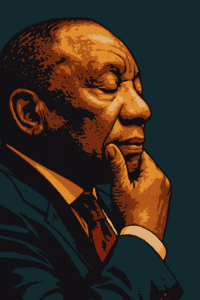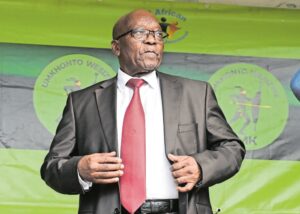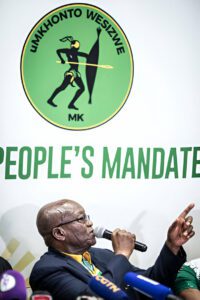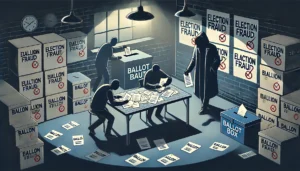The political landscape in South Africa has witnessed a significant shift with the emergence of the uMkhonto Wesizwe Party (MK Party), particularly following the involvement of former president Jacob Zuma. This development has sparked considerable debate and speculation about its potential impact on the African National Congress (ANC) and the broader political arena, especially in the KwaZulu-Natal (KZN) province.
Analyzing Voter Sentiment in KZN
Recent data released by the Social Research Foundation (SRF) has placed the spotlight on the MK Party’s growing influence in KZN. The poll suggested a dramatic political shift, with the MK Party potentially securing 24% of the vote in the upcoming provincial election on 29 May. This is closely trailed by the ANC at 25%, the Democratic Alliance (DA) at 15%, the Economic Freedom Fighters (EFF) at 5%, and the Inkatha Freedom Party (IFP) at 24%.
“The ANC’s house is on fire; it is finished. They are in shock,” one analyst remarked, highlighting the perceived seismic shift in KZN’s political dynamics. Another expert suggested that the poll results indicate a “total game change in South African politics,” crediting the MK Party with halving the ANC’s support in the province within four months.
Despite these bold claims, it’s crucial to approach such predictions with caution. The SRF poll, which interviewed 820 respondents via telephone, represents a small fraction of KZN’s over 5.7 million voters. The method’s inherent limitations and a declared margin of error of 5% necessitate a careful interpretation of these figures.
A Comparative Perspective
An Ipsos poll conducted through face-to-face interviews in June and July 2023 offers additional context. Before the MK Party’s formal registration and Zuma’s public affiliation, the ANC’s support was gauged at 22%, with the DA and EFF both at 13%, and the IFP at 17%. This poll also revealed a significant portion of undecided or non-committal respondents, suggesting a pool of potential MK Party supporters among disillusioned ANC voters.
The Ipsos findings challenge the narrative that the MK Party’s rise is the sole factor in the ANC’s declining fortunes in KZN. Instead, it points to a longer-term trend of diminishing support, exacerbated but not initiated by the MK Party’s emergence.
The Road Ahead: Coalitions and National Implications
The shifting allegiances and emerging political forces in KZN hint at a future where no single party holds a clear majority. This scenario likely necessitates coalition governments, with various combinations of the ANC, IFP, DA, and MK Party being explored to achieve governance stability and address the pressing need for improved service delivery.
Beyond KZN, the MK Party’s appeal to Zulu-speaking voters in Gauteng and Mpumalanga could further influence national politics. A strong showing in KZN, coupled with support in these provinces, might lead to significant changes in the national assembly’s composition, potentially requiring a broad-based coalition at the national level.
Conclusion
The emergence of the MK Party and the involvement of Jacob Zuma represent a pivotal moment in South African politics, particularly affecting the ANC’s dominance. While the immediate impact is most pronounced in KZN, the ripple effects could extend nationally, reshaping the political landscape and voter alliances. As South Africa approaches crucial elections, the interplay of traditional powerhouses and new entrants like the MK Party will undoubtedly be a focal point of analysis and speculation.


